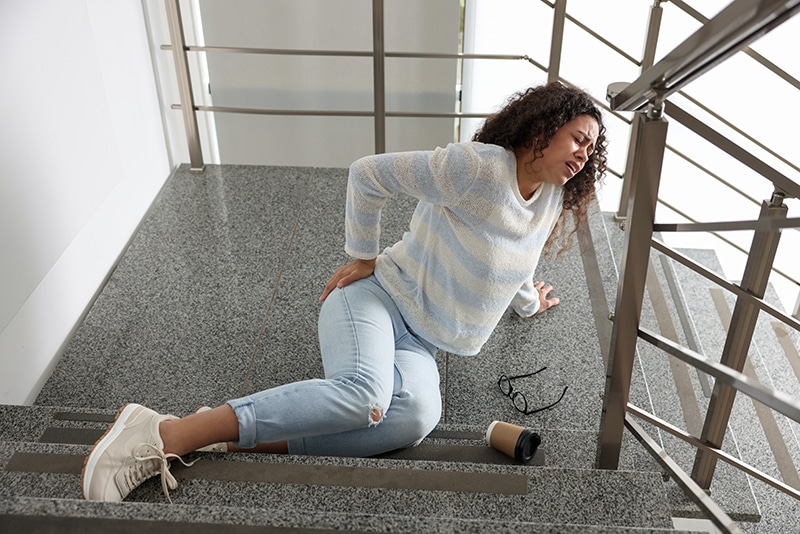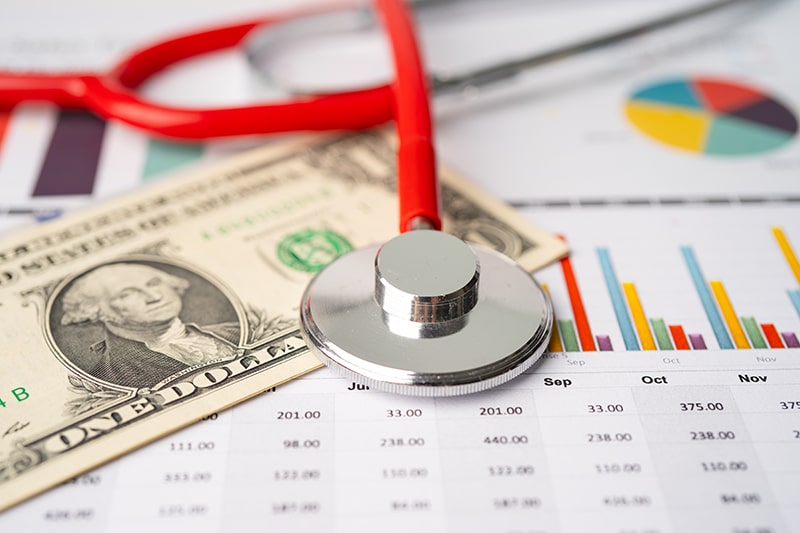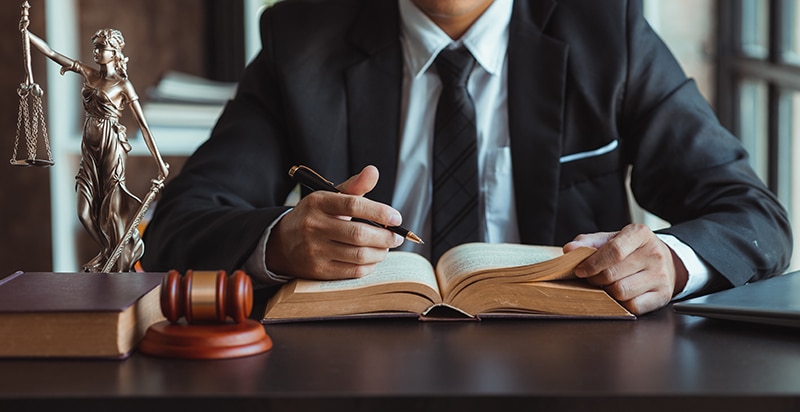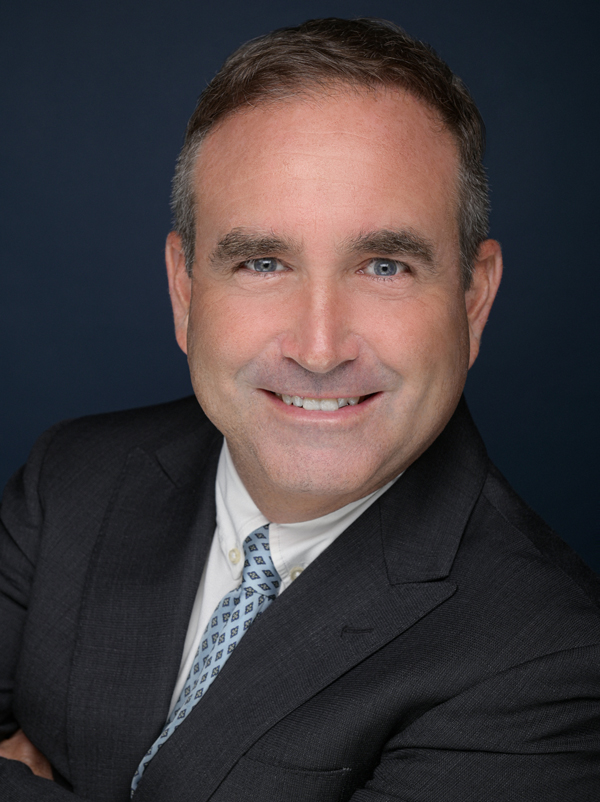Top Rated Premises Liability Attorneys in Just One Call
America's Top-Rated Premises Liability Lawyer
Find out why we are one of the best premises liability law firms in America
Premises Liability Attorney
Millions recovered for our clients all over the United States.
Goldberg & Loren has collected millions of dollars in claims for clients who were injured on someone else’s property. If you’ve been injured, don’t hesitate to contact Goldberg & Loren at (888) 522-0335 to discuss your premises liability case. Our national premises liability attorneys have the experience and knowledge necessary to get you the compensation you deserve.
What is Premises Liability?
Premises liability law governs the legal responsibilities of property owners and those who lease or occupy the property to others.
The law imposes a duty on the owner or occupier of property to take steps to ensure that the property is reasonably safe for those who come onto the property, whether as invitees, licensees, or trespassers.
If a property owner or occupier breaches this duty, and someone is injured as a result, the injured person may have a claim for damages.
Generally, a property owner or occupier is not liable for injuries that occur on the property if the injured person is a trespasser. The exception is if the property owner or occupier has created a dangerous condition on the property that a reasonable person would not expect to find there.
For example, if a property owner leaves a large hole in the ground unguarded, and a trespasser falls into the hole and is injured, the property owner may be liable for the injuries.
The duty of a property owner or occupier to ensure a safe property extends to all visitors, not just those who are paying customers. For example, a grocery store may be liable for injuries that occur to shoppers in the store’s parking lot, even if the shoppers are not in the store itself.
There are a number of common situations in which a property owner or occupier may be liable for injuries that occur on the property. These include, but are not limited to:
- Slip and fall accidents
- Injuries caused by animal attacks or bites
- Injuries caused by falling objects
- Injuries caused by chemical or other spills
- Injuries caused by fires or explosions
- Injuries caused by hazardous conditions, such as broken stairs, defective railings, or uneven pavement
If you have been injured as a result of a hazardous condition on someone else’s property, you may be entitled to compensation. To learn more, contact our experienced personal injury lawyers.

What is a Premises Liability Lawyer?
Premises liability lawyers are responsible for representing individuals or businesses who have been injured on another person’s or business’s property.
Premises liability lawsuits can arise from a variety of accidents, including slip and fall accidents, dog bites, daycare injuries, and other injuries that occur on another person’s property.
Premises liability lawyers may also be responsible for pursuing claims on behalf of individuals who have been injured as a result of dangerous property conditions, such as a lack of security or hazardous wiring.
If you have been injured on another person’s property, it is important to speak with a premises liability lawyer as soon as possible to protect your rights.
Who is at Fault in Premises Liability Lawsuit?
In premises liability cases, it is often necessary to determine who is at fault for an injury that occurred on someone else’s property. This can be a difficult task, as there are often multiple parties involved, and determining who is responsible for what can be complicated.
However, there are a few general guidelines that can help to determine fault in these cases.
The first step is to determine whether the property owner or the tenant is responsible for the injury. If the property is leased or rented, the tenant is typically responsible for any injuries that occur on the property. However, if the property is owned by the tenant, the owner is typically responsible for any injuries that occur.
If the property is owned by the tenant, the next step is to determine whether the owner is responsible for maintaining the property. If the property is maintained by the owner, the owner is typically responsible for any injuries that occur. However, if the property is maintained by the tenant, the tenant is typically responsible.
If the property is not owned or maintained by either the owner or the tenant, the next step is to determine whether the person who was injured was an invitee, licensee, or trespasser. An invitee is someone who is invited onto the property for a business purpose, such as a customer or client.
A licensee is someone who is allowed onto the property for a non-business purpose, such as a friend of the property owner. A trespasser is someone who is not invited or allowed onto the property.
If the person who was injured was an invitee, the property owner is typically responsible for any injuries that occur. If the person who was injured was a licensee, the property owner is typically responsible unless the property owner provided the licensee with a warning about any known dangers. If the person who was injured was a trespasser, the property owner is typically not responsible.
Table of Contents
-
Premises Liability Attorney
-
What is Premises Liability?
-
What is a Premises Liability Lawyer?
-
Who is at Fault in Premises Liability Lawsuit?
-
Common Injuries in Premises Liability Cases
-
Common Types of Compensation in Premises Liability Cases
-
Dealing with Insurance Companies and Personal Injury Claims
-
How is Liability Proven in a Premises Liability Case?
-
How Can a Premises Liability Attorney Help?
Automobile Accidents
Case Results
Common Injuries in Premises Liability Cases
There are many different types of injuries that can occur in a premises liability case. Some of the most common include:
Slip and fall injuries: This is the most common type of injury in a premises liability case. Slip and fall injuries can occur when a person slips on a wet floor, trips on a hole in the ground, or falls down stairs.
Injuries from falling objects: This type of injury can occur when a heavy object falls on a person, such as a piece of ceiling tile or a stack of boxes.
Injuries from defective stairs or escalators: This type of injury can occur when a person trips on a step that is higher or lower than the others, or when an escalator suddenly starts going in the wrong direction.
Injuries from animal bites: This type of injury can occur when a person is bitten by a dog, cat or other animal.
Injuries from fires or explosions: This type of injury can occur when a person is burned by a fire or when an explosion damages nearby property.
Common Types of Compensation in Premises Liability Cases
There are a variety of different types of compensation that may be available to an individual who has been injured on another person’s property or who has suffered a personal injury.
This includes both economic and non-economic damages. Economic damages are those that can be easily quantified, such as medical bills, lost wages, and property damage. Non-economic damages are more subjective and can include pain and suffering, emotional distress, and loss of consortium.
In many cases, the injured person may be able to recover both economic and non-economic damages. However, in some cases, the injured person may only be able to recover economic damages. This may be the case if the injury was relatively minor and there was no permanent damage.
In some cases, the property owner may be liable for the actions of a third party. For example, if a patron at a nightclub is assaulted by another patron, the nightclub owner may be liable for the injuries that the victim suffers.
There are a variety of factors that will determine the amount of compensation that an individual can recover in a premises liability case. This includes the severity of the injuries, the amount of medical bills, and the amount of lost wages. It also includes the TYPE of compensation that is being sought.
Economic damages are usually easier to obtain than non-economic damages. This is because the amount of medical bills and lost wages can be easily quantified. However, non-economic damages can be more difficult to obtain and can often be contested by the property owner.
In order to obtain non-economic damages, the injured person must typically show that they have suffered some sort of permanent injury. This can be difficult to do and can often require the services of an expert witness.
The amount of compensation that an injured person can receive in a premises liability case can be significant. This is especially true if the injury is severe and results in significant medical bills and lost wages. In some cases, the injured person may be able to recover millions of dollars in damages.

Dealing with Insurance Companies and Personal Injury Claims
When dealing with an insurance company, there are some common tactics that are used to minimize financial loss and, therefore, minimize responsibility on behalf of the at-fault party. One such tactic is to delay payment. This can be done by dragging out the claims process or by offering a lower settlement than what the victim is actually owed.
They also may claim that the victim was partially at fault for the accident. This can be done by claiming that the victim was not paying attention or was driving too fast. By doing this, the insurance company can reduce its financial responsibility for the accident.
Another common tactic is to shift the blame to someone else. This can be done by claiming that the victim was hit by another car or that the victim’s own car was defective. This allows the insurance company to avoid paying for damages that were caused by accident.
Finally, the insurance company may try to minimize the severity of the victim’s injuries, even when they have suffered a serious injury. This can be done by claiming that the victim’s injuries are not as bad as they seem or by denying that the injuries were caused by accident. By doing this, the insurance company can avoid paying for the victim’s medical expenses and other damages.
How is Liability Proven in a Premises Liability Case?
A duty of care is a legal obligation to avoid doing harm to another person. It is the responsibility of the person with the duty of care to take reasonable steps to protect the other person from foreseeable harm.
The duty of care arises out of a relationship of trust and dependency. The person with the duty of care is usually in a position of authority or responsibility over the other person.
The duty of care is not absolute. There is no duty to take risks in order to protect someone else. The duty of care only applies if the person with the duty can reasonably foresee that the other person might be harmed.
The person with the duty of care must take reasonable steps to protect the other person from foreseeable harm. What constitutes reasonable steps will vary depending on the circumstances. Factors that will be taken into account include:
- The nature of the relationship between the parties
- The likelihood and severity of any potential harm
- The cost and feasibility of taking any protective measures
If the person with the duty of care breaches their duty, they may be held liable for any resulting harm.
How Can a Premises Liability Attorney Help?
A premises liability lawyer can help an individual who has been injured as a result of a property owner’s negligence. Property owners can be held liable for injuries that occur on their premises if they fail to maintain a safe environment or if they fail to warn visitors of any potential hazards.
Our experienced personal injury attorneys can help injured individuals file a claim against the property owner and can also help them negotiate a settlement. If the injured individual is successful in their claim, they may be awarded damages that can help cover the costs of their medical bills and other associated expenses.
Call us at (888) 522-0335 for a free consultation.


We fight hard for our clients who have been injured on someone else's property. Our personal injury lawyers fight for maximum compensation.
George Goldberg
Senior Partner
Have Questions About Your Case? Call Us Today: